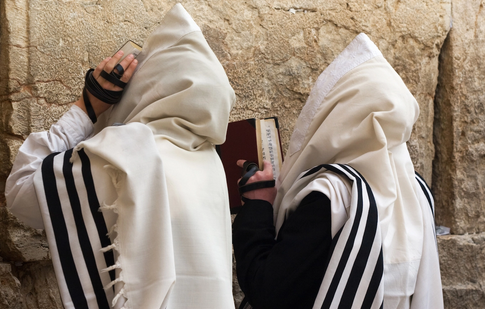The Forty Nine Days between Passover and the Giving of the Torah
“And you shall count for yourselves from the morrow of the Shabbat, from the day that you bring the omer that is raised, seven complete weeks there shall be until the morrow of the seventh week you shall count fifty days.” Leviticus 23:15-16
From the day after the Passover, Jews are commanded to count the omer - counting each day for 49 days. The fiftieth day was the day we were given the Torah by God on Mt Sinai.
From first glance, the Torah seems a little sparse on the details on why and how to count the omer. But before we delve into that, let's take a step back into the purpose of Passover.
The purpose of Passover is not just to clean out the chametz (leavened bread) from our homes. The greater purpose is to clean the chametz (the leavend ego) from our hearts - the soul’s true home. With our egos subjugated and put in check for the week, it is a perfect time to begin refining our egos so that we can live a life of true humility. This refining is the purpose of the omer count.
Let’s look at the verses in Leviticus again.
“And you shall count…”
The Hebrew word for “count” used in this verse is “sephartem”. This is unique as the usual word for “count” is “paqad”. As each word of Torah is specific to convey an idea, we can gather that the world sephartem is used for two purposes 1) that as we count we are refining our inner light (our inner souls) so that we can prepare our hearts to for the commandments as the 10 commandments were written originally written on stones of sapphire (sapphire is an English derivative of sephartem).
Moreover, the word sephartem is where the “sefirot” originates. The sefirot are the attributes of the soul that we can refine. These attributes were in perfect balance in the original man, Adam. However they are out of balance within each person. To come closer to the original image in which we were created, these attributes need to be refined. Those attributes are chesed (loving-kindness), gevurah (restriction), tiferet (compassion), netzach (victory), hod (humility), yesod (connectedness), malchut (action). Each of the seven weeks of the omer count address one attribute, beginning with chesed. And each day of the particular week also addresses one attribute. For example, day one of the forty nine days (Week 1, Day 1) will address the attribute of loving-kindness within loving-kindness, the second day (Week 1, Day 2) will address restriction within loving-kindness, and so forth. Week 2, day 1 focuses on loving-kindness within restriction, and so forth. Thus, understanding that the word for “count” is sephartem carries a lot of weight.
“Seven complete weeks…”
Additionally, the Hebrew word used in this Torah for “weeks” is “shabbatot”. (A more common Hebrew word for weeks is Shavuot - it is also the name of the holiday concluding the omer count). Although the Torah text seems sparse on the details of the counting of the omer, it is conveyed in the text that as we refine our character over the seven weeks, we will begin to reflect the completeness and beauty reflected on the seventh day of Creation - the original Shabbat.
“Count for yourselves…”
This tells the hearer of Leviticus 23:15-16 of the wisdom and necessity in following this commandment for our personal growth as the text says “count for yourselves”. Without this time of personal growth and reflection, we would not be individually prepared to receive the Torah and respond with “all the God says, we will do” (Exodus 19:8).




